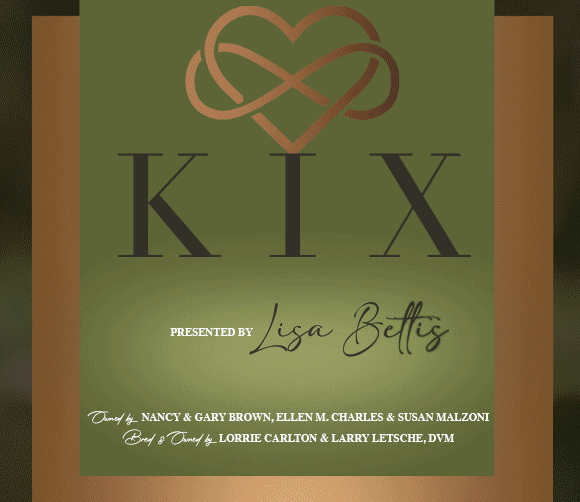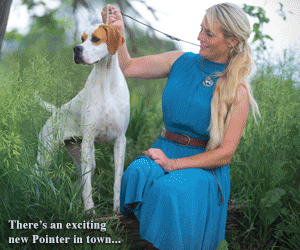AVMA: Tips on keeping pets safe, calm during July Fourth celebrations
 More pets go missing and are admitted to shelters around the Fourth of July than at any other time of the year, the American Veterinary Medical Association (AVMA) is reminding pet owners to prepare for the holiday and take steps to keep pets as safe and calm as possible.
More pets go missing and are admitted to shelters around the Fourth of July than at any other time of the year, the American Veterinary Medical Association (AVMA) is reminding pet owners to prepare for the holiday and take steps to keep pets as safe and calm as possible.
While fireworks, picnics and other Fourth of July traditions can be great fun for people, all of these festivities can be frightening and even dangerous for animals. Whether or not you’re planning your own Independence Day celebration, it’s important to take precautions to keep your pets safe both during and after Fourth of July festivities.
In addition to the possibility that fireworks can startle animals and cause them to run away, the Fourth has some other risks for our pets, such as an abundance of unhealthy and accessible foods at parties, dangerous summer heat, and dangerous debris on the ground following fireworks displays.
How to help our pets that are frightened by fireworks
Get plenty of exercise: Taking your dogs out for play and exercise earlier in the day, besides being a healthy thing to do, can help burn off extra energy, limiting their anxiety later and helping them rest more soundly at home. And cats can definitely benefit from an extra play session, too.
Give them a safe space: As much as it’s possible, keep your pets indoors, ideally in settings where firework noise will be at a minimum. Cats often feel most secure in a covered spot that is elevated off the ground, like a hut in an indoor cat tree, while your dogs might need a little extra help and encouragement finding a good spot to retreat.
Try to find a spot in the quietest, most secure room possible to put your dog’s crate or bed. Keep windows and curtains closed to further muffle sounds, and take some time to see what works best for your dog, such as lowering the lights or covering the crate with a blanket.
Dress for success: Some pets seem to feel more secure in snug-fitting shirts designed specifically for this purpose. Talk to your veterinarian about what options are available.
Set an example: Our pets may look to us to see how we are reacting and be influenced by our behavior, so try to remain calm during fireworks—even if they bother you as well. Try not to react too strongly to fireworks or your pets’ distress.
Replace scary sounds with soothing sounds: White noise, music or television can be used to provide comfortable, familiar sounds that drown out or muffle the frightening and unexpected sound of fireworks. If you’re unsure of what music or sounds to play, get some suggestions from friends or online community groups to see what works well for their pets.
Occupy pets with new—or favorite old—toys: You can help distract your pets by introducing new toys and treats into the house. Food puzzles and long-lasting treats, for example, can be a great way to keep your pets distracted from noises that frighten them.
Consult with your veterinarian: If the problem persists or seems insurmountable, talk to your veterinarian about a plan that may include further behavior modification and/or medical intervention. Make that appointment as soon as possible to ensure a holistic plan is in place before the fireworks begin.
Get ahead of it … don’t wait: All of these tactics will have a greater impact before pets become fearful of fireworks. Whenever possible, aim to minimize, or even prevent, stress by setting up your pet with their safe space, background noise, favorite long-lasting treats and any medications before you expect fireworks to begin.
How to prevent pets from escaping
Make sure the outdoor environment where you pet will be spending any time is safe and secure. If your neighbors set off fireworks at an unexpected time, is your yard secure enough to keep your pet contained? Evaluate your options, and choose the safest area for your animals; and make improvements if needed to make the area more secure.
If you’re hosting guests, ask them to help keep an eye on your pets to make sure they don’t escape. Placing notes on exit doors and gates can help both you and your guests remain vigilant.
Because this is such a common time of the year for pets to go missing, it’s also a good time to make sure your pets are equipped with identification tags with up-to-date information. If your pets aren’t already microchipped, talk with your veterinarian about microchipping. This simple procedure can greatly improve your chances of getting your pets back if they become lost. If your pets are microchipped, make sure your contact information in the microchip registry is up-to-date.
Advice for owners leaving their pets at home
It’s probably a good idea to leave your pets at home if you go to parties, fireworks displays, parades and other gatherings. Loud fireworks, unfamiliar places and crowds can all be very frightening to pets, and there’s great risk of pets becoming spooked and running away.
If you’re leaving your pets at home, think about how well they’ll respond to the sound of fireworks. If your pets aren’t bothered by fireworks, it’s probably OK to leave them at home like normal if you run out for a short outing. If your pets don’t like fireworks, use the same tactics to help minimize their fear as if you were home. This may include extra exercise before your leave, anti-anxiety medication and leaving them in a quiet part of the house, with some distracting treats and music or a fan or other type of sound to cover the fireworks.
If you’re taking a trip out of town for the weekend, let whoever is watching your pet know if they’re scared of fireworks and what has helped in the past so they can create a calm and safe environment for your pet.
Other advice
Check your yard for fireworks debris before allowing pets outside to play or relax. Even if you didn’t set off fireworks yourself, debris can make its way into your yard, where curious animals may pick it up to play with or eat.
Remember that too much sun and heat (and humidity!) can be dangerous to pets. Keep them inside when it’s extremely hot/humid; make sure they have access to shady spots and plenty of water when outdoors; don’t leave them outside for extended periods in hot weather; and know the signs that a pet may be overheating.
Don’t let pets get near your barbecue grill while it is in use or still hot.
Avoid the urge to feed your pets table scraps or other foods intended for people. Be especially careful to keep them away from these common foods that can be toxic to pets:
- Xylitol-containing products (xylitol is an artificial sweetener often found in sugar-free candy and gum)
- Chocolate (although some types of chocolate are not as toxic as others, it’s safer to keep your pet away from all types of chocolate)
- Onions
- Grapes and raisins
- Fatty and fried foods
- Macadamia nuts
- Avocados
For more tips on keeping your pets happy, healthy and safe, visit AVMA.org.
Short URL: https://caninechronicle.com/?p=267132
Comments are closed












